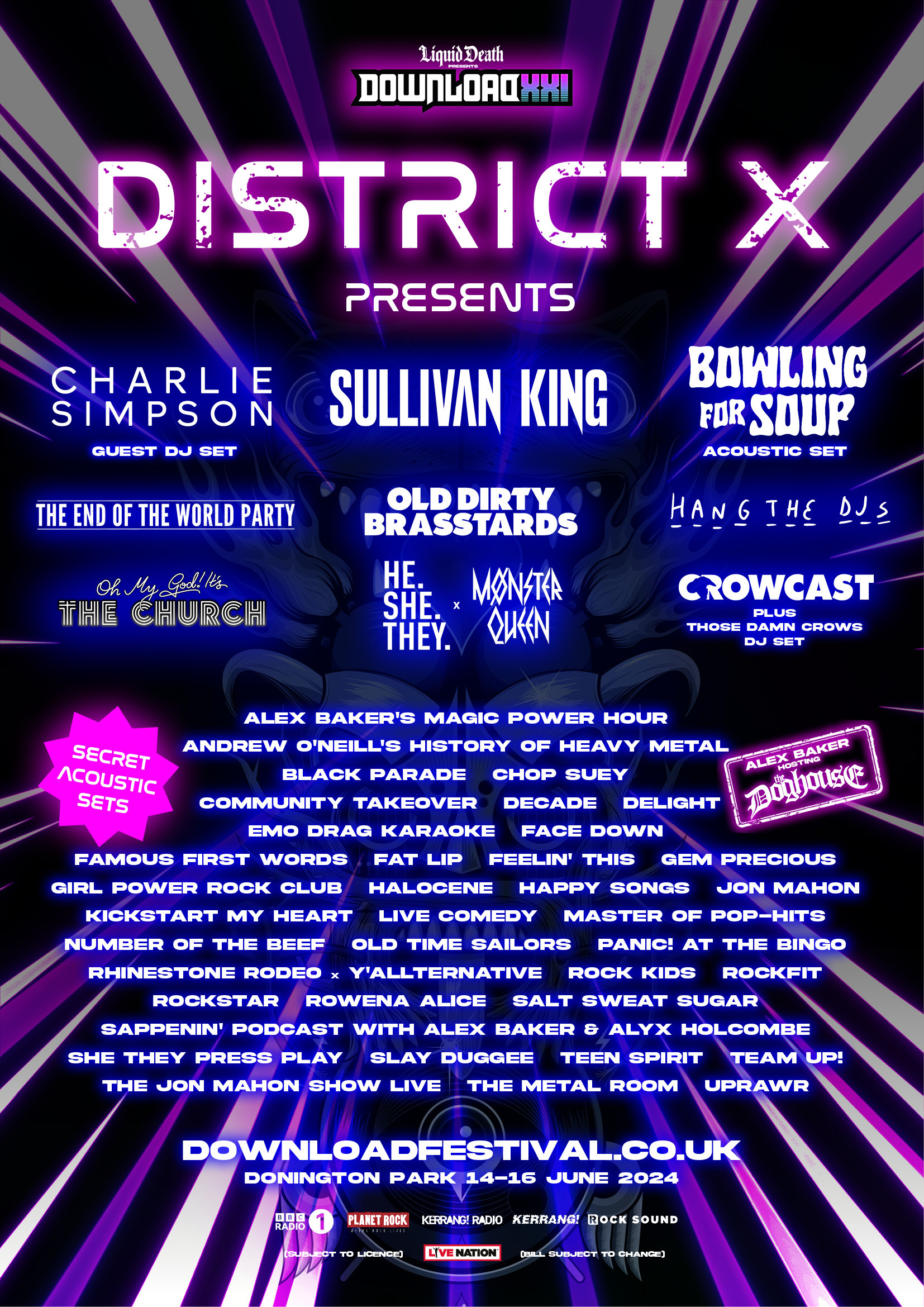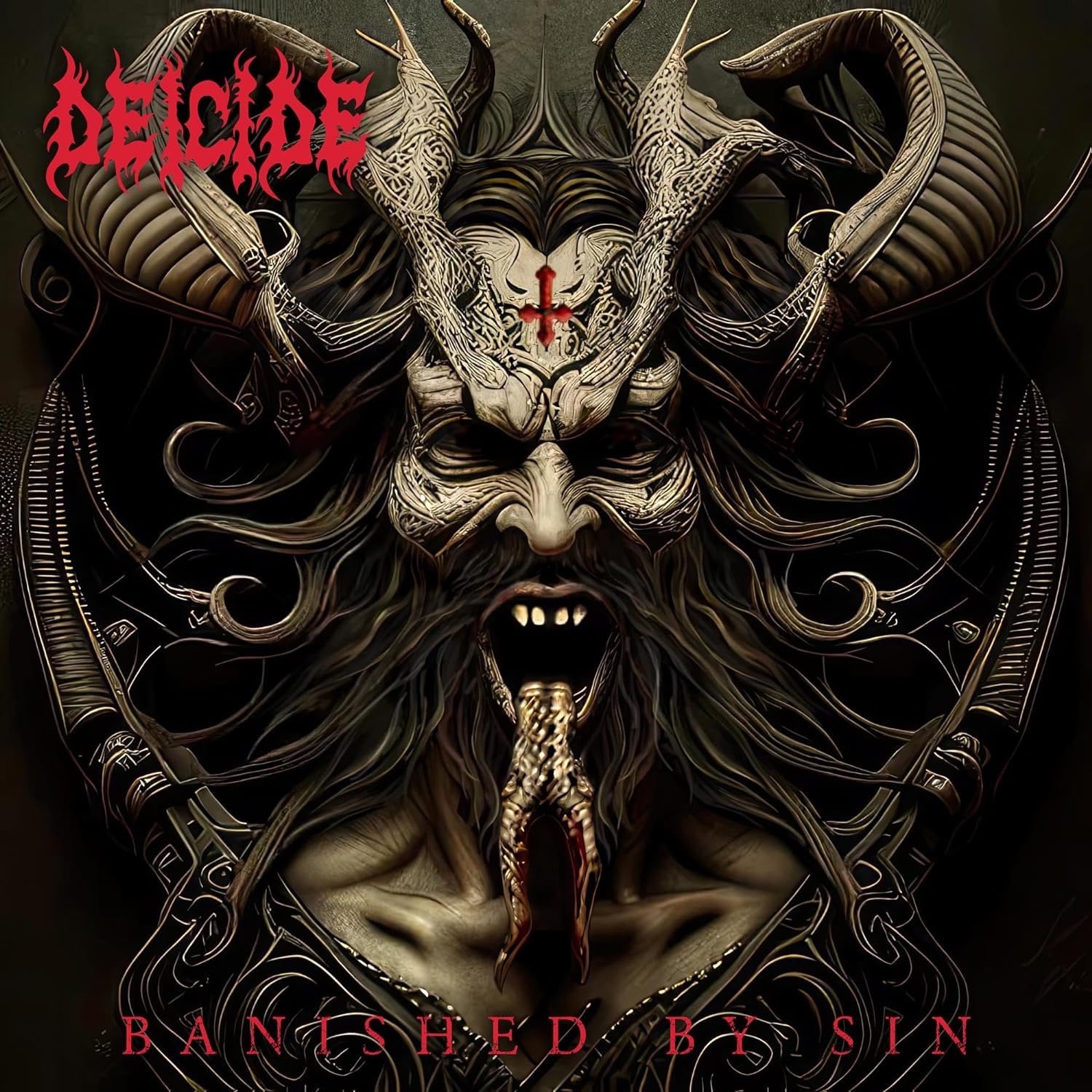There was a time, and not so very long ago, where name Marilyn Manson was enough to cause apoplexy in the moral majority. A figure whose mere existence outraged those more sensitive souls for whom the likes of Bon Jovi represented the outer limits of rebellion and whose CD collection represented an enduring, if misguided, love for Michael Bolton. Marilyn Manson’s social crimes were manifold. Not content with hybridising the glamorous and the ungodly in order to create a name that had resonances far beyond the moniker of Brian Warner with which he was christened; his stage attire caused the more straight-laced in society to fall over themselves in decrying his perversity whilst his arch insistence on incorporating everything from huge neon signs emblazoned with the word ‘drugs’ to disturbingly fascistic imagery into his sets was a giant finger probing the weakest spots of the very society that spawned him.
Yet, for all that, Marilyn Manson has not made himself an easy artist to follow. The scabrous highlights of his early career were followed by a period spent wallowing in artistic mediocrity, his muse seemingly departed as he unleashed the likes of ‘eat me, drink me’ and ‘high end of low’ to an altered world, made cynical in the wake of 9/11, and hellbent on the path to rampant nationalism and a corresponding decrease in social mores that plucked the sting from his schtick. That all changed as Marilyn Manson found a new collaborator in the form of composer Tyler Bates (300, Devil’s Rejects, John Wick), whose atmospheric, industrial soundscapes provided the perfect canvas upon which Marilyn Manson could daub his articulate proclamations. The result was Manson’s finest album since ‘Holy wood’, an opus that was as superficially cold and closed off as the world in which Marilyn found himself in the wake of personal tragedy, and yet within which a fire still burned.
It’s been four years since ‘the pale emperor’, and in that time Manson has fired off rumour after rumour as to what the follow-up would be. In the end, he simply reunited with Tyler Bates, as well as drummer Gil Sharone, for ‘Heaven Upside Down’, with the result that the album feels like its natural successor (despite Manson’s assertions to the contrary) as well as drawing, surprisingly, upon the likes of ‘Antichrist superstar’ and ‘mechanical animals’ for inspiration. Certainly, it is a more violent album, and it consolidates upon the success of its forebear whilst adding a few new strings to Manson’s sonic arsenal.
Right from the start, ‘heaven upside down’ feels a darker, more brutal trip into the tormented psyche of America’s greatest agent provocateur. ‘Revelation #12’ edges closer to the searing, punk-infused industrial might of Ministry than anything since ‘Antichrist Superstar’, Manson’s scaly voice tearing across a landscape of tortured, scratchy guitars, throbbing bass and electronic augmentation. It’s dark, thrilling and dangerous in a manner that Manson has only hinted at in recent years. Taking a step back from the precipice of unadulterated rage, ‘Tattooed in reverse’ slows the pace and adopts a sleazy, glam-infused pose that recalls the Bowie-isms of ‘Mechanical Animals’, albeit with a more abrasive edge than that album summoned. As sinister as its title implies, ‘WE KNOW WHERE YOU FUCKING LIVE’ is Marilyn Manson at his most gloriously expansive. Rhythmic, brutal, with a chorus to die for, it’s as perfect a summation of Manson’s strengths as ‘the beautiful people’ back in 1996. Manson’s ever-impressive ability to make the most clattering industrial backdrop and reframe it as a metal-club, floor-filler continues with ‘SAY 10’, a typically tongue in cheek homophone that shows that, through all the highs, and inevitable lows, of his studiously acquired stardom, Manson retains his mordant sense of humour. Initially an atmospheric track, ‘SAY 10’ sees Tyler practicing his inner Trevor Rabin before allowing the chorus to explode into ferocious life, the bank of synths employed on the verse giving way to a surprisingly organic guitar sound. As if aware that variety was the strongest aspect of albums like ‘Golden Age of the Grotesque’ and ‘Mechanical Animals’, ‘KILL4ME’ once again backs away from the cyber-punk heaviness of the previous two tracks and digs, once again, into that dark, Twin-peaks-esque lounge sound that Manson does so well. Underpinned by a taut disco beat and with synths worthy of Depeche Mode, the track reaches a peak when backwards phased guitar adds yet more depth to the overall sound and Manson… he hasn’t sung better.
The second half of the album opens up with a track which could easily be a long-lost Depeche Mode track from the era when Dave Gahan was regularly courting his own destruction. A sanguine, menacing track with a bristling chorus, ‘Saturnalia’ is Manson at his sinister best, using technology to enhance the dark pop songs that inhabit his core rather than obliterate them, and it leads nicely to the belligerent ‘JE$U$ CHRI$I$’, a track that taps into the over-the-top, Burlesque nightmare of ‘Golden age…’ (think ‘s(AINT)’). Just as the album reaches its heaviest, Manson turns everything on its head with the poignant ‘blood honey’, a track led by a piano melody as gorgeous as anything Manson has created since ‘the god that you fear’. A rare stripping away of the industrial armour with which Manson typically surrounds himself, ‘blood honey’ is an album highlight and it gets under the skin with insidious ease. Another track that recalls the dark pop of ‘the pale emperor’, ‘heaven upside down’ is a surprisingly up-tempo piece as we head into the final stretch and another potential single thanks, primarily, to the strength of Manson’s vocal performance. So, what is left for the album’s final track? Industrial? Brutal metal? Soul? Wait, what? Final track ‘threats of romance’ sees Manson dig deep to deliver what can only be described as industrial-strength soul, sort of like a mad scientist crossing the DNA of Beth Hart, Faith No More and Gary Numan and then letting the result loose on stage. It marks the conclusion of the most inventive Manson album in some time a comment which, far from denigrating the ‘Pale Emperor’, is rather meant to highlight just how inspired Manson and Bates appear to be at this point in time.
Success inevitably leads to some dimming of the creative faculties. Even Bowie, one of Manson’s idols, was not immune (just check out ‘never let me down) from the pressure that comes with releasing a platinum-selling behemoth of a record, so it is hardly surprising that Manson’s work, following ‘Golden Age…’ took a dip. However, the recruitment of Tyler Bates and a reawakening in Manson’s own breast of the hunger that informed his best work, has led to a career high and both ‘the pale emperor’ and ‘heaven upside down’ are fine pieces of work, with the latter edging into the lead thanks to its wildly inventive streak and a performance from Manson that is nothing short of astonishing. Possessed of a number of floor-fillers and yet thought-provoking and eclectic, ‘heaven upside down’ is a strong album indeed. 9











Leave a Reply